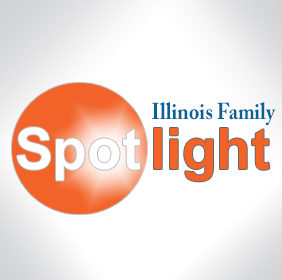
New Anti-Bullying Bill in Springfield
Written By Laurie Higgins |
03.12.12
Reading Time: 4 minutes
Not only did Illinois pass a terrible “anti-bullying” law two years ago, but now lesbian activist and appointed State Representative Kelly Cassidy (D-Chicago) has proposed an amendment that has the potential to make school “bullying” policies even more intrusive. Here are some of the problems with HB 5290:
- This amendment would mandate that the State Board of Education establish “restorative measures” for schools to use to combat bullying. Restorative measures that include potentially intrusive and emotionally manipulative activities involving what’s called “social and emotional learning” and “peer juries, circles, and mediation.”
Illinois was the first state to mandate that “Social and Emotional Learning” (SEL) standards be incorporated into curricula. Psychologist Daniel Goleman’s 1995 book Emotional Intelligence was influential in propelling the desire of liberal educators to expand their areas of influence to children’s emotions, values, and beliefs through what has come to be called SEL standards. It is through SEL standards that a host of troubling ideas about homosexuality and gender dysphoria/Gender Identity Disorder are working their way into curricula.
One of the foremost organizations dedicated to promoting SEL is the Collaborative for Social and Emotional Learning (CASEL) which is located in Chicago. One of CASEL’s co-founders is Daniel Goleman, and CASEL cites the Gay, Lesbian and Straight Education Network (GLSEN) as one of its resources.
CASEL boasts that one of “SEL outcomes related to success in school and life” is “improved ethical attitudes and values.” What are the ethical attitudes and values that public schools will be promoting, and is it really the role of public schools to teach ethics, particularly on topics on which there is no cultural consensus?
The current president of CASEL, Dr. Robert Weissberg, is a member of the DuPage County Anti-Bullying Task Force that created the 2011 “Best Practices in Bullying Prevention and Intervention,” which makes clear the connections between bullying prevention, “social and emotional learning” and the promulgation of liberal beliefs about the nature and morality of homosexuality.
This document states that “’When schools are able to scaffold bullying prevention onto a larger more comprehensive framework for prevention and positive youth development, they strengthen their prevention efforts while also addressing some of the underlying contributing social, emotional, and environmental factors that can lead to bullying. A social and emotional learning (SEL) framework can serve just this purpose.’” Liberals believe that conservative moral and theological beliefs constitute the central underlying contributing factor in the bullying of students who identify as homosexual, and, therefore, a central plank of their efforts is to eradicate those beliefs.
Further, this document emphasizes the importance in bullying education to work “together with parents, families and community to understand… sexual orientation.” There can be no doubt that the “understanding” of “sexual orientation” that is being promoted is “progressive” in nature.
Tufts University lecturer Deborah Donahue-Keegan, who teaches “Education for Peace and Justice,” states that “High school teachers, particularly those who teach history and/or social studies, subjects where issues of civic concern are central, have an increasingly complex ‘explicit pedagogical responsibility for promoting their students’ social, moral and emotional growth.’” Integral to the social and emotional learning movement is the effort to influence moral beliefs.
Combating bullying is a critical goal of public schools, but in many public schools, the issue of bullying is dominated by discussions of homosexuality and gender dysphoria (or what liberals call “gender identity”). Current efforts to prevent bullying focus on trying to influence student beliefs about the nature and morality of homosexuality and behaviors related to gender confusion. These efforts to influence student beliefs or feelings about homosexuality or gender confusion are dangerous and inappropriate means to curb bullying. - This law would mandate that “restorative measures” be implemented before suspension or expulsion, which means that students may be compelled to be exposed to ideological and/or emotional manipulation. The goal of keeping students in school is a good goal, but the means for achieving this goal should not include requiring students to participate in activities involving peer juries, peer circles, or peer mediation that carry serious emotional risks.
Furthermore, the language of this amendment should be changed to state that “Restorative measures may not include any instruction, resources, or activities that implicitly or explicitly contradict or undermine any student’s or parents’ beliefs (including religious, moral, political, and philosophical beliefs) or that might be construed as criticisms or indictments of any student’s or parents’ beliefs”. - This law adds yet more categories of conditions for which students may not be bullied. Since it is impermissible to bully any student for any reason, enumerated categories are unnecessary.
Retaining and expanding enumerated categories opens the door to other special interest groups demanding the inclusion of yet more categories in this ever-expanding enumerated list. In addition, it will increase resentment among those groups who are bullied for reasons not enumerated.
In addition, since “sexual orientation,” and “gender identity” (conditions enumerated in existing law) are conditions constituted by behaviors that many consider immoral, their inclusion raises the possibility that those who affirm other conditions constituted by volitional acts that many consider immoral (e.g., polyamory) will demand inclusion of their conditions.
All categories should be eliminated. - This law requires that the “State Board of Education recommend that schools create professional development [i.e., the training of staff and faculty] and youth programming for bullying prevention that are consistent with State Board of Education recommendations.” In other words, the State Board of Education will tell districts what kinds of ideas they should teach to staff and faculty. Does this mean that the State Board of Education will mandate what every school district will have to teach staff and faculty? Will youth programming be required?
- This amendment changes the original law from requiring schools to “create and maintain” bullying policy to requiring schools to “create and administer,” which seems to mean that schools must not merely have the policy but must also actively promote it, presumably through the “professional development and youth programming” mentioned above.
- This amendment would mandate that even “allegations of incidences of bullyingbe collected, maintained, and submitted to the State Board of Education, which shall keep a record of each incident.” There isn’t enough specificity in the bill’s language to know what information would be included in such a permanent record, which makes this dangerous. If allegations of bullying are not proved, no permanent records should include identifying information about alleged perpetrators.
Take ACTION: Click HERE to contact your representative and urge him/her to oppose HB 5290.

Laurie Higgins was the Illinois Family Institute’s Cultural Affairs Writer in the fall of 2008 through early 2023. Prior to working for the IFI, Laurie worked full-time for eight years...
Related Articles

Homeschooling, Part 3

Homeschooling, Part 2























